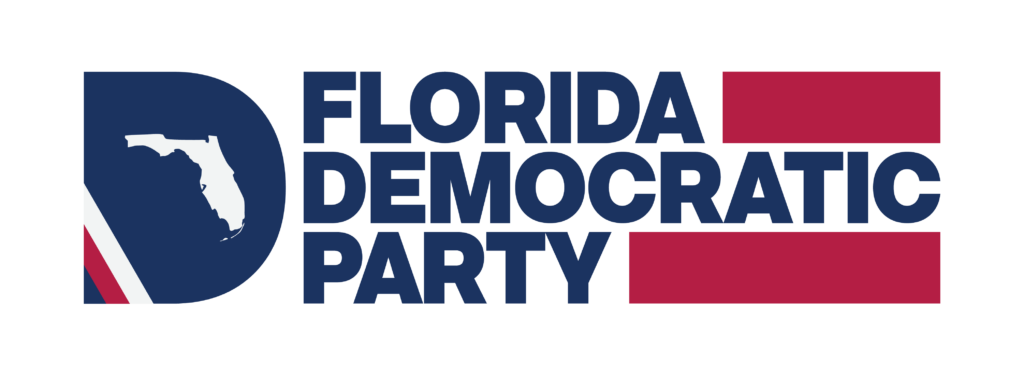In the News
Tamp Tribune: Mack's South America policies examined


Front page of the Tampa Tribune today. The newspaper’s investigation shows, among other things, that Mack filed legislation specifically to help Chevron oil and a New York hedge-fund honcho who is raising campaign money for him.
It is a must read. Here are a few key facts from the piece:
- “Mack has introduced a resolution seeking to penalize Ecuador, citing as one reason an $18.2 billion judgment against Chevron over an environmental debacle of oil drilling pollution in the nation’s Amazon rainforest. Chevron is one of the largest contributors to the U.S. Chamber of Commerce, which has spent $1.8 million to defeat Mack’s opponent, Sen. Bill Nelson.
- Mack also has introduced legislation that could force Argentina to pay full price to an American hedge fund management company for Argentine debt the company bought at a steep discount. The company’s executives, including billionaire owner Paul Singer, have contributed heavily to Mack’s campaign, and Singer is a seven-figure backer of Mack’s ally, Mitt Romney.
- Mack has engaged in a crusade against Venezuelan President Hugo Chavez and has used the issue to boost his political profile while he was considering entering the Senate race.”
Tamp Tribune: Mack’s South America policies examined
By William March
Rep. Connie Mack IV cites his position as chairman of the Western Hemisphere subcommittee of the House Committee of Foreign Affairs among his foremost achievements during four terms in the House.
He has used that post to argue for an America-first approach to foreign affairs and a hard-line approach to the Castro regime in Cuba — stances pleasing to conservatives and Florida’s Cuban exile community.
But since he began contemplating his current run for the U.S. Senate, the committee work also has provided Mack a way to raise his political profile and push legislation that could help some of his political backers. For example:
- Mack has introduced a resolution seeking to penalize Ecuador, citing as one reason an $18.2 billion judgment against Chevron over an environmental debacle of oil drilling pollution in the nation’s Amazon rainforest. Chevron is one of the largest contributors to the U.S. Chamber of Commerce, which has spent $1.8 million to defeat Mack’s opponent, Sen. Bill Nelson.
- Mack also has introduced legislation that could force Argentina to pay full price to an American hedge fund management company for Argentine debt the company bought at a steep discount. The company’s executives, including billionaire owner Paul Singer, have contributed heavily to Mack’s campaign, and Singer is a seven-figure backer of Mack’s ally, Mitt Romney.
- Mack has engaged in a crusade against Venezuelan President Hugo Chavez and has used the issue to boost his political profile while he was considering entering the Senate race.
Mack, a Fort Myers Republican and son of former Sen. Connie Mack III, is seeking to unseat Bill Nelson, the Democratic incumbent senator, in the Nov. 6 general election.
Mack’s legislative proposals involving Ecuador and Argentina haven’t passed.
A Mack campaign spokesman responded to questions about the legislation with an email bashing Nelson.
“Liberal Bill Nelson’s baseless accusations suggest he would rather sing ‘Don’t Cry for Me Argentina’ than defend the rights of U.S. citizens in the competitive global market,” said Mack spokesman David James.
James said Nelson is “trying again to divert attention again from his 98 percent lockstep voting record with Barack Obama,” and repeated the campaign’s past criticisms of Nelson over tort reform, the Keystone oil pipeline, “card check” signups for union organizing and the Affordable Care Act health care reform law.
* * * * *
The Ecuadoran resolution says the nation should lose the benefits of trade treaties with the U.S. because of allegations of corruption, human rights violations and a refusal to cooperate with anti-drug enforcement by the government of President Rafael Correa.
The resolution cites the judgment against Chevron, which arose from a 1972-90 Amazonian drilling project operated by Texaco in partnership with the Ecuadoran national oil company.
Drilling pollution led to litigation against Texaco and then Chevron, which bought Texaco in 2000. Thousands of Ecuadorans, including indigenous rainforest tribesmen, said they suffered cancer, birth defects, infant mortality and other ailments.
They cited massive oil spills from a pipeline network that carried oil to the coast, plus billions of gallons of toxic drilling waste — water contaminated with heavy concentrations of salt, hydrocarbons and other chemicals — dumped into hundreds of open pits and still leaking into streams across vast areas of rainforest.
Mack’s resolution, introduced in July and since referred to the full Foreign Affairs Committee, says Ecuador has failed to heed an arbitrator’s order to stop trying to collect the judgment.
Judith Kimerling, an environmental law professor at City University of New York, whose 1991 book, “Crude,” is credited with sparking the litigation, said that ruling wasn’t a judgment on the merits of the issue but an interim ruling “to keep things the way they are while the … arbitration proceeds.”
Chevron says the judgment is the product of a corrupt judicial system. But Kimerling said the litigation originally was filed in the U.S. and moved to Ecuador at Chevron’s insistence.
Chevron, meanwhile, is a significant U.S. political player.
According to its Securities and Exchange Commission filings, it gave $500,000 political contributions to the U.S. Chamber of Commerce in 2010 and another $500,000 in 2011.
No filing for 2012 is yet available, and a Chevron spokesman refused to say whether the company has given more this year.
The chamber, a charitable organization under the tax code, doesn’t report its donors.
It has spent $12.7 million on political advertising campaigns for the 2012 election, according to the Center for Responsive Politics.
The $1.8 million it spent attacking Nelson is the chamber’s fourth-highest total after the presidential campaign and the Ohio and Virginia Senate races.
* * * * *
The Argentina legislation stems from that nation’s 2001 default on $81 billion in foreign debt. Most of the creditors, representing about 91 percent of the debt, subsequently accepted settlement offers for reduced repayments on the bonds, many of which were set at double-digit interest rates.
But a few creditors, including a firm owned by Singer’s hedge fund company, Elliott Management Corp., wouldn’t settle.
The company, known for buying distressed debt of companies and nations at discount prices and then seeking full repayment, had bought the Argentine debt at steeply discounted prices but is now suing for full repayment that would reap the company more than $2 billion, according to figures cited in news reports.
An Elliott spokesman didn’t return calls for comment on the case.
“The way Elliott works is to buy debt at discounted prices when the country faces financial distress, then after the country recovers to litigate to receive payment in full,” said Mark Weidemaier of the University of North Carolina-Chapel Hill law school, an expert on international finance and sovereign lending. But, he said, “the business model doesn’t work.”
The U.S. government has intervened in this case and at least one similar case on the side of a debtor nation out of concern it could prevent restructuring of debt in future cases of distressed debtors, he said.
“What creditor would want to restructure if some holdout creditor could grab a share of whatever money other creditors receive?” Weidemaier said. “Nobody wants to be the chump who takes 30 cents on the dollar when somebody else gets 100 percent.”
Elliott helps fund a lobbying group, American Task Force Argentina, pushing in Congress to force Argentina into full repayment.
* * * * *
In May 2011, while Mack was contemplating a Senate run, ATFA put out a news release congratulating him on introducing the bill.
Elliott employees have contributed heavily to Mack’s campaign, according to the Center for Responsive Politics, giving him a total of $39,413 — more than to any other candidate except Romney.
In addition, Singer has given $2.2 million to super PACs, including $1 million to the Restore Our Future PAC backing Romney.
Mack has been a longtime critic of Venezuela’s Chavez, but his anti-Chavez activity reached a crescendo in late 2010 and early 2011 — a time when Mack had been considering a U.S. Senate run but hadn’t yet decided.
During that period, loyal Mack staffers including Jeff Cohen, who has been Mack’s campaign manager and congressional office chief of staff, formed a nonprofit group, the Committee to Free Venezuela, linked to the public relations firm for which Cohen then worked.
Its stated mission was to publicize the threat Chavez posed to the U.S., and it named Mack honorary chairman.
It quickly raised $150,000 from sources it won’t reveal. The main use of that money apparently was to make what it called a documentary film that consisted almost solely of video showing Mack giving an anti-Chavez speech to a conservative political group. It eventually paid to air the film on a television station in Houston — the U.S. headquarters of the Citgo oil company, owned by the republic of Venezuela.
www2.tbo.com © Copyright 2012 Media General Communications Holdings, LLC. A Media General company.
http://www2.tbo.com/member-center/share-this/print/?content=ar510246


